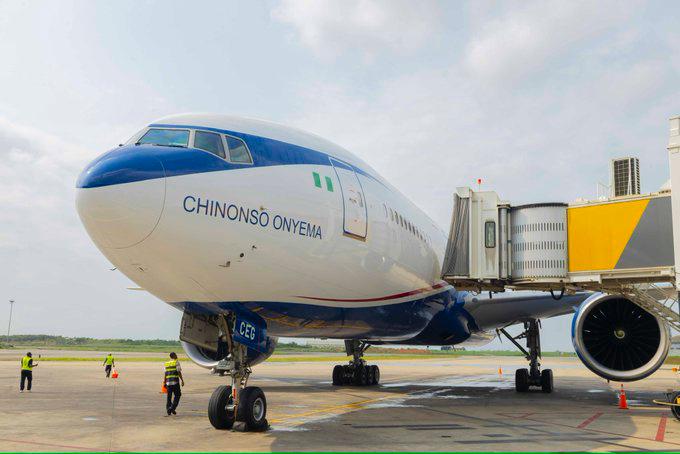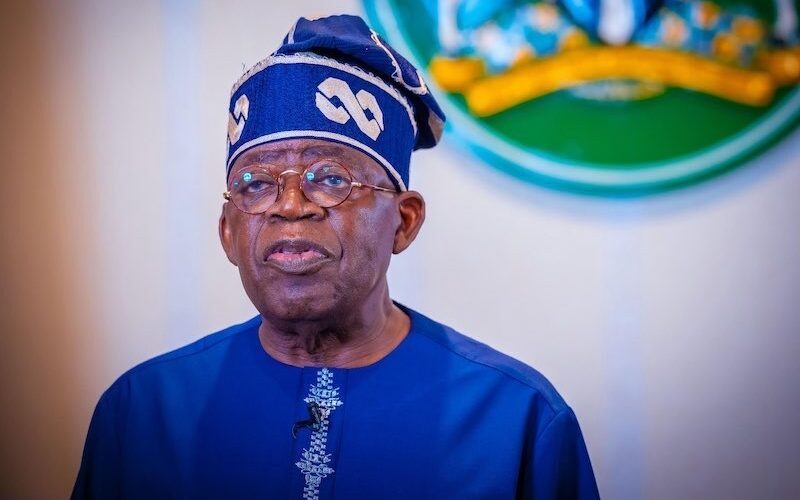PAT ONUKWULI reflects on how recent in-flight confrontations reveal the urgent need to balance safety with justice and dignity in Nigeria’s aviation sector
If the Nigerian sky could speak these past few weeks, it would
sigh. It would speak not of gentle flights or safe landings, but of tempests that rose inside its belly, storms of voices, tempers, and clashing wills.
In at least three different scenes, the aviation sector became the stage for dramas that could have been lifted straight from the crowded heart of Balogun or Ochanja markets: Comfort Emmanson’s violent confrontation with Ibom Air crew on the Uyo–Lagos route; another passenger’s defiant tussle during
disembarkation; and KWAM 1’s extraordinary blockade of a ValueJet aircraft on Abuja’s tarmac.
They played out like acts in an unplanned theatre, passengers and crew improvising lines of anger and accusation. At the same time, the nation watched, popcorn in hand, through the lens of shaky smartphone videos.
It must be stated clearly: safety is the first rule in aviation, but not the only one. Aviation, in its purest form, is about trust. When passengers step into an aircraft, they surrender themselves to the laws of aerodynamics and the competence of strangers. They agree, without bargaining, that safety is the highest rule, switching off their phones, stowing their bags, fastening their belts. In return, the crew
pledges to guard their lives as fiercely as their own.
Philosophy offers a vital compass here. Aristotle, in his Nicomachean Ethics, teaches that some things are ends in themselves, while others are means to those ends. Safety, precious as it is, is a means, the road, not the summit. The summit is human flourishing, or eudaimonia. If in securing safety we destroy
dignity, we have reached the road but lost the journey.
Immanuel Kant, the German Enlightenment philosopher, approaching from a different path, insists that people must always be treated as ends in themselves, never merely as tools for another goal. Even in the enforcement of safety, the humanity of those governed must be respected. A passenger is not simply a potential threat to order but a bearer of dignity whose rights remain intact at 35,000 feet and throughout the journey.
The ultimate purpose is the preservation of life, and in preserving life, dignity must also be maintained. Authority without justice becomes tyranny; safety without respect descends
into cold, mechanical control.
In Nigeria, however, the way rules are enforced quite often bears the stamp of another era, one of barked orders and public humiliation. Whether at a police checkpoint in Okene, in the glare of a soldier’s torch on the Enugu-Okigwe Road, or the tense aisle of an aircraft, the tone of an instruction can turn from directional to intimidating in an instant.
The viral video of Ms. Comfort Emmanson is Ibom Air’s side of the story. In it, the narrative is straightforward: she refused to switch off her phone, escalated into violence, and was restrained.
But law, real law, demands more than one narrative. It requires the principle of audi alteram partem, which means hearing the other side.
The Nigerian Bar Association, acting with the sobriety of a guardian of the rule of law, issued a pointed statement on August 12, 2025, condemning the treatment meted out to Ms. Comfort Emmanson as “reckless” and “a violation of the dignity of the human person” guaranteed under the Nigerian
Constitution.
The Association described the incident as one in which Ms. Emmanson was forcibly
removed from the aircraft, stripped in public view, and filmed in a state of extreme vulnerability, an occurrence which, in their words, should be a source of national shame in any society that claims to
be civilised.
The NBA further observed that the video footage appeared to show a flight attendant
physically preventing Ms. Emmanson from leaving the aircraft, an act they noted could amount to false imprisonment under Nigerian law.
The NBA reminded the airline that the aggrieved party cannot decide the punishment. A lifetime ban, decreed unilaterally, is not justice but judgment in one’s cause. They demanded the ban’s withdrawal,
a public apology, and an impartial investigation involving the NCAA, FAAN, and the Ministry of Aviation.
They condemned the filming and distribution of her nudity as not just immoral but criminal,
calling for prosecution of those responsible. And then, in a decisive stroke, they pledged free legal representation to ensure her case did not vanish into the quiet corridors of forgotten injustice.
These headline-grabbing quarrels are not isolated storms; they are the thunderclaps of a deeper weather pattern. They speak to an aviation culture where enforcement is often reactive, where crew see passengers as unruly, passengers see crew as arrogant, and regulators watch from a safe distance. The
unreported skirmishes, the arguments at check-in, the raised voices at boarding gates, are the quiet drizzle beneath the public downpour.
It is tempting to focus solely on the shortcomings of passengers. After all, an aircraft is not a commercial bus where disputes with the driver can be entertained mid-journey. Yet a culture of safety must exist in tandem with a culture of respect. When either is neglected, mistrust inevitably assumes a central role in the relationship between crew and passengers.
If Nigerian aviation is to rise above these storms, the change must be deliberate. Airlines must invest in training that not only drills safety procedures but also cultivates emotional intelligence and conflict
de-escalation. The NCAA must ensure that enforcement is not only firm but lawful, proportionate, and humane. Passengers must understand that compliance is not submission but cooperation, and that safety rules are not optional suggestions.
The nation must recognise that dignity is not a privilege reserved for the calm and compliant; it is a right that accompanies every traveller from the departure lounge to the final gate, and one that must endure even in moments of turbulence. The sky, in its silence, offers a lesson: storms pass, but their memory lingers in the places they strike.
The wise will see recent events not as justification for entrenched habits, but as catalysts for building an aviation culture that is as safe as it is just and humane. In the end, aircraft should not only land passengers on runways, but they should also bring the nation to a higher moral ground.
The journey is not merely from Lagos to Uyo, or Abuja to Lagos; it is from intimidation to respect, from coercion to cooperation, from the fractured skies of today to the calmer ones all citizens deserve.
Until that destination is reached, no flight, regardless of its smoothness, can be considered truly safe.
Dr. Onukwuli, a legal scholar and public affairs analyst, writes from Bolton, UK.
The post COMFORT EMMANSON: FROM TURBULENCE TO JUSTICE appeared first on THISDAYLIVE.


